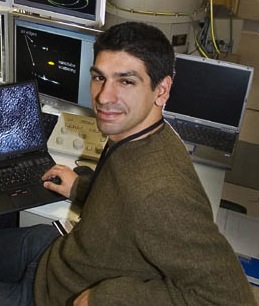
Abstract
We purposefully design and study “molecular-like” interfacial interactions between the multidimensional nanometer-scale building blocks that compose larger-scale functional light harvesting devices. Using time-resolved optical spectroscopy, we aim to understand the nature of discrete interfacial electronic states and their role as crucial intermediates promoting efficient interactions between extended systems (e.g., charge transfer). Our research has suggested the importance of such intermediate interfacial states in both hard and soft nanomaterial heterostructures, including semiconductor quantum dots and organic semiconductors. We aim to understand the fundamental impact of “molecular-like” interfacial states on macroscopic material properties, such as charge transport and light harvesting. For example, we have carried out a systematic study of low-bandgap push-pull type polymer structures mixed with a series of fullerene based molecular acceptors. This allows us to systematically tune the absolute energy levels of the polymeric donor and molecular acceptor, as well as the relative offset between them and measure the influence of the molecular driving force (electrochemical potential difference of the unoccupied donor and acceptor energy levels) on the charge transfer rate and efficiency. In this manner, we can determine the smallest necessary voltage loss required to sustain a high short circuit current.
Biography
Matt Sfeir is an Associate Scientist at the Center for Functional Nanomaterials at Brookhaven National Laboratory. He received his Ph.D. in 2005 from Columbia University where he worked with Louis Brus. His interests are in the development and application of broadband optical probes and analysis methods to study novel chromophore and nanomaterial based light harvesting devices. His research program focuses on interfacial electronic phenomenon and their role in promoting efficient interactions (e.g., charge transfer) between extended systems.